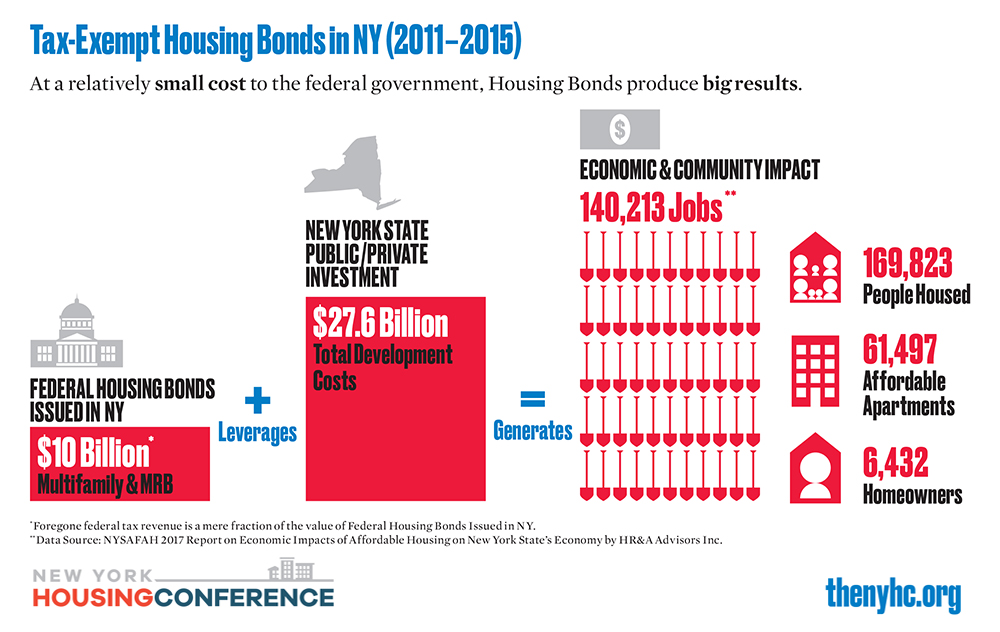Federal advocacy to protect and expand vital housing funding will be critical this year. Visit this page to see the latest federal campaigns and to support our efforts. We’ll continue updating and adding more content.
Sign-On Letter Opposing HUD Cuts, Block Granting Funding, and Term Limits for HUD programs.
Join NYHC in a letter to the NY Congressional Delegation in opposing President Trump’s budget proposal for HUD cuts, block grants and term limits, while supporting full funding for federal housing programs. We urge the participation of tenant and community organizations, developers, landlords, lenders and elected officials to join us in explaining what is at risk with drastic cuts and policy changes and how extensive the harm will be to renters, landlords and lenders.
See the letter here.
Oppose HUD Cuts, Block Grants & Term Limits
Enter your information to add your organization here.
"*" indicates required fields
Analysis of President Trump’s Proposed Budget
Read our analysis of President Trump’s budget proposal here.
Affordable Housing Snapshots
View affordable housing need and impact of federal resources for New York State and by Congressional District below. Not sure who represents you? Use the “Find Your Representative” tool!
| NY-1 | NY-6 | NY-11 | NY-16 | NY-21 | NY-26 |
| NY-2 | NY-7 | NY-12 | NY-17 | NY-22 | |
| NY-3 | NY-8 | NY-13 | NY-18 | NY-23 | |
| NY-4 | NY-9 | NY-14 | NY-19 | NY-24 | |
| NY-5 | NY-10 | NY-15 | NY-20 | NY-25 |
Federal Housing Action Tracker
Since President Trump took office, his administration and DOGE have taken a number of actions that undermine housing resources including mass firings at HUD, impounding Congressionally appropriated funds and eliminating programs with keywords like “equity” and “resiliency”. This timeline will track major federal housing policy and operations changes and continue to be updated. You can also keep track of lawsuits against the administration here.
Sign-On In Support of HUD Field Offices
NYHC and 27 affordable housing organizations, representing hundreds of housing practitioners across New York state sent a letter to HUD Secretary Turner expressing about reports that HUD is considering closing the Buffalo field office and urging him to reverse this plan and ensure that HUD maintains and adequately staffs all three New York offices.
See the text of the letter here.
Federal Housing Sign-On
NYHC and over 100 elected official and organization partners sent a letter calling on our NY Congressional delegation to protect and expand federal housing resources including HUD programs and the Low-Income Housing Tax Credit (LIHTC).
See the text of the letter below or see the final pdf here.
Dear Members of the New York Congressional Delegation,
The New York Housing Conference and the undersigned organizations and elected officials write to urge you to protect and expand federal housing resources that are crucial to keeping constituents all over this state stably housed – including U.S. Department of Housing and Urban Development (HUD) programs and the Low-Income Housing Tax Credit (LIHTC). We are also deeply concerned by efforts from DOGE and the administration to bypass Congress, impound appropriated funds and their plans to eliminate half of HUD staff which will hobble the agency, severely impacting program delivery and hurting HUD’s partners in real estate, community development and lending- but ultimately these actions will be most harmful to renters and homeowners relying on HUD programs.
For example, the Office of Community Planning and Development is slated to be reduced by 786 workers (84%), impacting CoC homeless grants, HOME and CDBG creating housing instability for the most vulnerable renters including the formerly homeless. A reduction of 765 staff in Public and Indian Housing would impact Section 9 public housing and Section 8 vouchers, having a destabilizing effect on a program reliant on the participation of private market landlords. The reduction of 1,114 staff (44%) proposed for the Office of Housing will impact management of project-based rental assistance, HUD-assisted housing, RAD and the Federal Housing Administration (FHA). Cuts to FHA will disrupt the entire housing industry by stalling loan originations and servicing and threatening the viability of affordable housing transactions. Early moves from DOGE are already delaying projects and creating an environment of uncertainty for lenders and investors.
This Congress and Administration were elected by voters who were overwhelmingly motivated by economic concerns. However, while housing costs are the main driver of inflation and a household’s greatest expense, we have seen no meaningful federal action to lower housing costs. In the meantime, the affordable housing crisis is worsening by the day, driving up homelessness and creating a mounting cost burden for families in every state. The nationwide housing shortage is estimated to have reached 4.5 million homes. Nowhere in the country can a full-time minimum-wage worker afford a two-bedroom rental. In New York, renters need to make almost $45 per hour to afford a two-bedroom rental – $53 per hour if they live in the New York City Metro Area. And in every single region across New York state, more than 40 percent of renters are cost burdened – paying at least 30% of their income on rent.
Federal tools are the most important resource for maintaining housing stability and financing new affordable housing in this country and they must continue to play a key role in solving our housing crisis. HUD programs already keep 1,069,400 New Yorkers stably housed, including over 1 million living in cities and suburbs, and over 50,000 in rural areas and small towns. They primarily serve seniors on fixed incomes, people with disabilities, and low-income working families in your districts – all of whom will be at risk of homelessness if these programs are not adequately funded and staffed. This includes Section 8 tenant and project based rental assistance, public housing programs, supportive housing for the elderly and people with disabilities, McKinney-Vento, and Housing Opportunities for Persons with AIDS. Programs such as the Community Development Block Grant, the HOME Investment Partnership and the Housing Trust Fund help add affordable housing supply but each of the HUD programs address critical local housing needs. As Congress looks to finalize a FY25 budget and beyond, the New York Delegation must not only reject calls to cut HUD programs and staff that would disproportionately impact your constituents, but seek the highest level of funding possible to ensure they continue to remain viable.
Further, tax negotiations present Congress with the opportunity to unlock vital financing for affordable housing developments that will produce and preserve high-quality, below-market-rate homes for years to come. Since its creation, the LIHTC program has built or preserved 4 million homes. In New York, it’s financed over 270,000 homes to serve 635,000 low-income families, supported over 460,000 jobs and generated billions of dollars in economic activity and tax revenue.
Congress should exempt affordable housing from state volume cap of tax-exempt private activity bonds for the next decade to turbo charge affordable housing production by passing the ASAP Housing Act. Any tax package must at minimum:
- Lower the “50 percent test” to 25 percent to decrease the amount of tax-exempt private activity bonds (PABs) needed to access the 4 percent Housing Credit and
- Extend the 12.5 percent increase to the 9 percent Housing Credit that was allowed to expire.
These simple tax modifications are a direct pipeline toward creating a more robust housing safety net for the millions of households across the country struggling to keep a roof over their heads. They also enjoy bipartisan support as provisions of the Affordable Housing Credit Improvement Act of 2024, which has 274 bipartisan co-sponsors in the U.S. House and 35 in the Senate. A version of these reforms was also passed by the House in the bipartisan Tax Relief for American Families and Workers Act just last year.
The elimination of tax-exempt private activity bonds is being considered on a list of potential “pay-for” proposals in a budget reconciliation bill. Eliminating this crucial tool is shortsighted and would only exacerbate the affordability crisis for working families all over this country.
Congress must continue to invest in affordable housing if we ever hope to address the housing crisis at scale. We need both immediate assistance for low-income New Yorkers and long-term solutions for greater creation and preservation of affordable housing projects, which will not only address the affordable housing crisis but create jobs and boost economic vitality in the process. We urge you to protect and expand federal housing resources.
Sincerely,
New York City Comptroller Brad Lander
New York City Public Advocate Jumaane Williams
New York State Senator Liz Krueger
New York State Senator Rachel May
New York State Senator Zellnor Myrie
New York State Assembly Housing Chair Linda Rosenthal
New York State Assemblymember Khaleel Anderson
New York State Assemblymember Noah Burroughs
New York State Assemblymember Robert Carroll
New York State Assemblymember Jessica Gonzalez-Rojas
New York State Assemblymember Judy Griffin
New York State Assemblymember Paula Kay
New York State Assemblymember Micah Lasher
New York State Assemblymember Grace Lee
New York State Assemblymember Steven Raga
New York State Assemblymember MaryJane Shimsky
New York State Assemblymember Michaelle Solages
New York State Assemblymember Phara Souffrant Forrest
New York State Assemblymember Claire Valdez
New York City Council Housing Chair Pierina Sanchez
New York City Councilmember Erik Bottcher
New York City Councilmember Farah Louis
New York City Councilmember Vickie Paladino
ACMH, Inc.
Affordable Homeownership Foundation Inc.
Albany Housing Coalition, Inc.
Alembic Community Development
ANHD
Ardent Construction & Dev Inc.
Ascendant Neighborhood Development Corporation
Better Community Neighborhoods, Inc. (BCNI)
Breaking Ground
Bronx Pro Group
Building Blocks Together Dev Corp.
The Building & Realty Institute of Westchester
CAMBA/CAMBA Housing Ventures
Camber Property Group
Center for NYC Neighborhoods
Chhaya Community Development Corporation
Christ Church UCC – Bronx Multi-Faith Advisory Group
Citizens’ Housing and Planning Council
CJA Business Advisers LLC
Columbia Opportunities, Inc.
Community League of the Heights, Inc CLOTH
The Community Preservation Corporation
Community Service Society of New York
Comunilife
Curtis + Ginsberg Architects LLP
Dattner Architects
Douglaston Development
Essence Development
Fifth Avenue Committee
FLACRA
Forsyth Street Advisors
Geel Community Services, Inc.
Goddard Riverside
Gotham Organization
Habitat for Humanity New York City and Westchester County
HANAC
The Health & Housing Consortium
HeartShare Human Services of New York
HeartShare St. Vincent Services
Hirschen Singer & Epstein LLP
Homeless Services United
Hope Community, Inc
Housing Action Council
Interfaith Assembly on Homelessness and Housing
Joy Construction
K2New Business Development and Marketing Strategy
Kinetic Communities Consulting Corporation
Leviticus 25:23 Alternative Fund, Inc.
L+M Development Partners
Lynn P Anderson Co.
MBD Community Housing Corp.
Milestone Development LLC
Milestone Companies
Neighborhood Coalition for Shelter, Inc.
Neighborhood Preservation Coalition NYS
Neighborhood Restore HDFC
New Destiny Housing
Newman Design Architects PLLC
New York Housing Conference
New York State Association for Affordable Housing (NYSAFAH)
New York State Council of Churches
The NRP Group
NYAH Advisors, LLC
OBRA Architects
Project Hospitality
Real Estate Board of New York (REBNY)
Regional Plan Association
RiseBoro Community Partnership
Settlement Housing Fund, Inc.
SKA Marin
St. Augustine Presbyterian Church
St. Francis Friends of the Poor
St. Nicks Alliance
Supportive Housing Network of New York
UAI
UHAB
University Neighborhood Housing Program
Vecino Group
VIP Community Services
Volunteers of America-Greater New York
WellLife Network Inc.
West Side Federation for Senior and Supportive Housing
Win
YWCA Binghamton & Broome County









